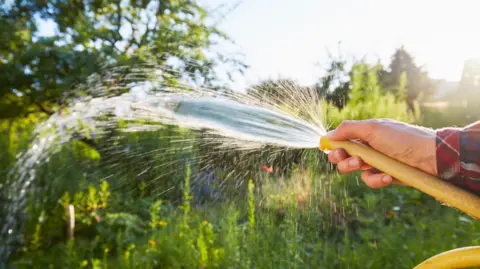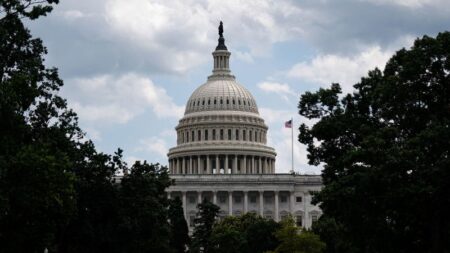A hosepipe and sprinkler ban has officially been implemented across the South East of England, directly impacting over 1.4 million residents in Kent, East Sussex, and West Sussex. Initiated by South East Water, this temporary restriction arises due to unprecedented demand for drinking water, which has reached “record levels” since May. The ongoing warm and dry weather has exacerbated the situation, prompting the need for such measures to conserve the precious resource.
Under these new regulations, residents are prohibited from using hosepipes for a variety of purposes including watering gardens, washing vehicles, cleaning windows and patios, as well as filling swimming and paddling pools. This ban is not just a minor inconvenience but a necessary action to manage water supplies effectively amid a prolonged dry spell.
South East Water’s Chief Executive Officer, David Hinton, emphasized the gravity of the situation, stating that despite previous appeals for responsible water usage, the company found itself with no alternative but to impose this ban. The firm is committed to continuously monitoring the situation while also keeping an eye on long-term weather forecasts, with plans to review the ban’s status regularly. People caught violating the hosepipe restrictions face potential fines of up to £1,000, underscoring the seriousness of compliance.
The water company recorded its highest daily usage of water this year on June 30, totaling 680 million litres—a staggering 105 million litres more than what is typically consumed during summer months. South East Water also pointed out its ongoing monitoring efforts in areas served within parts of Surrey, Hampshire, and Berkshire.
This recent ban is part of a broader trend in the UK, as water companies scramble to manage water supplies. Yorkshire Water initiated a similar ban beginning on July 11—the first such restriction in 2025. Other firms like Thames Water and Southern Water are set to unveil their bans soon. Specifically, Thames Water’s ban will commence on July 22, while Southern Water’s regulations will take effect from July 21, impacting nearly one million customers across Hampshire and the Isle of Wight.
Interestingly, in May, companies such as Southern Water, SES Water, and Affinity Water had asserted that they did not anticipate implementing restrictions in 2025, highlighting the rapid change in water situations throughout the year. This year has witnessed three significant heatwaves, with the BBC Weather Centre noting that July 1 was recorded as the hottest day of the year at 35.8 degrees Celsius in Faversham, Kent.
The Environment Agency has expressed concerns regarding drought conditions, declaring some regions of the UK either in state of drought or experiencing prolonged dry weather. With one of the driest springs ever recorded in England and the sixth driest across the UK, the potential ramifications for both the environment and biodiversity are alarming. The agency warned that such weather conditions could lead to increased wildfire risks, adversely affecting vulnerable ecosystems like heathlands and moorlands. Additionally, low water levels pose challenges for navigation on canals and rivers while also increasing the risk of crop failures.
As hosepipe bans continue to proliferate, it remains unclear when restrictions will be lifted. The situation remains fluid, with some southeastern regions expected to experience drier conditions through mid-August, prompting speculation about further restrictions throughout the summer months.
Despite the challenges, there remains hope for those affected. Continued rainfall could provide some relief; however, forecasting drought conditions is complex and remains uncertain. Local communities and residents are encouraged to engage responsibly with water usage while remaining vigilant regarding any updates from water authorities.
This ongoing narrative highlights the significance of sustainable water management and the collaboration required from both water companies and consumers alike to navigate the challenges posed by climate change and changing weather patterns.











